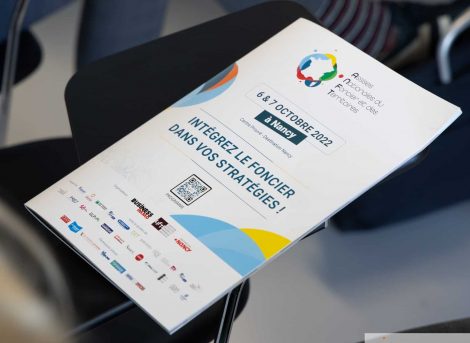The National Conference on Land and Territories (ANFT)
The AFNT was born out of a partnership between Business Immo (real estate) and LIFTI (Land and Territorial Initiative), of which ECT is an active member, to give public and private actors of land, real estate and local development a place to network. The last edition recorded an attendance of 450 participants.
This new edition will be held in Nancy. The two-day event will feature debates, workshops and roundtables that focus on the challenges associated with land in order to successfully « build a new land pact ». « An ambitious program to reconcile the worlds of development and real estate in a logic of constructive dialogue, » said Sandra Roumi, President of Business Immo.
ECT takes part in a debate on « Urban renaturations »
Guillaume Pasquier, Director of Development at ECT, is invited to take part in the debate « Finally taking biodiversity into account: a land imperative? » The Climate and Resilience Act of August 22, 2021 has reassessed the issues of renaturation by enacting a goal of zero net artificialization (ZAN). What actions have already been implemented to build more resilient cities? For which economic models?
He spoke about the perspectives of « Urban Renaturation », a crucial subject between the protection of biodiversity, permeability and recreation of soils, as well as land contributions.
The debate was moderated by Lisa Lejmentel, in charge of the Humanity and Biodiversity association, and included Katheleen Monod, thematic coordinator at the National Office of Biodiversity, Mathilde Chaboche, deputy in charge of urban planning and harmonious development for the city of Marseille, and Cécile Cren, head of biodiversity and natural environments at Vinci.
Contributing to the ZAN objectives
Through its circular economy model for excavated soil and as a non-building developer, ECT contributes to the Zero Net Artificialization objectives of communities.
In consultation with local authorities, projects such as the creation of parks, forests and nature areas, and the rehabilitation of wasteland and agricultural sites are self-financed by the reuse of urban construction land.
These developments create non-artificialized surfaces and contribute to a positive balance.

